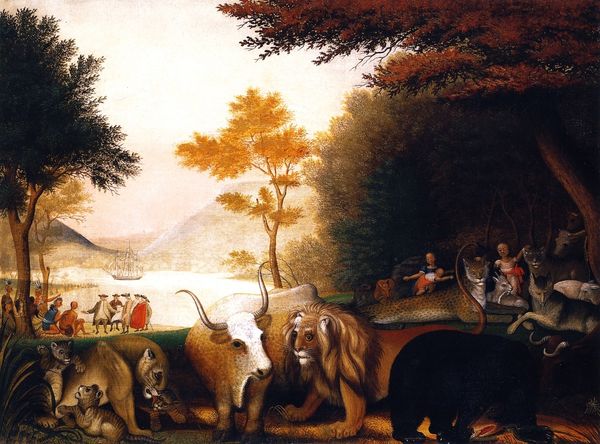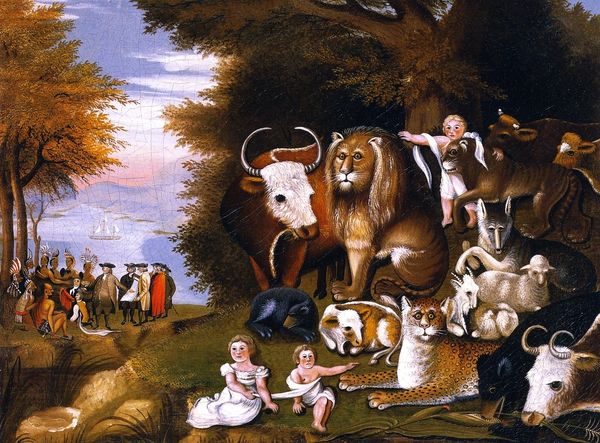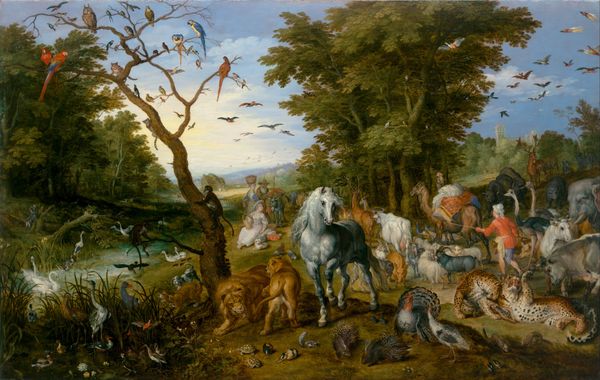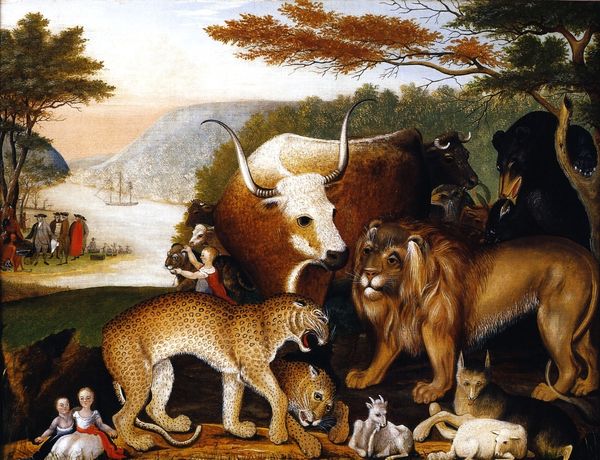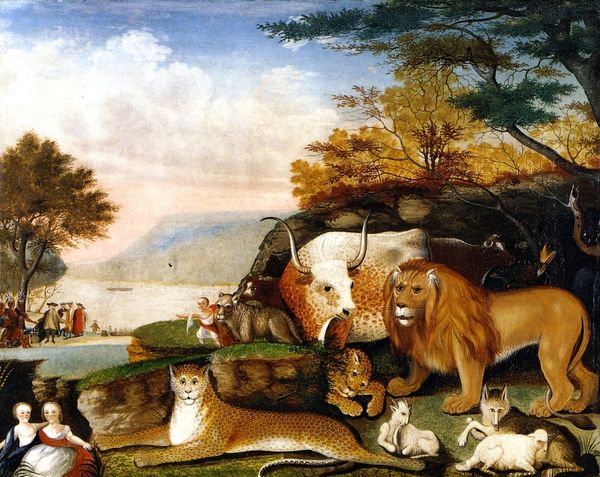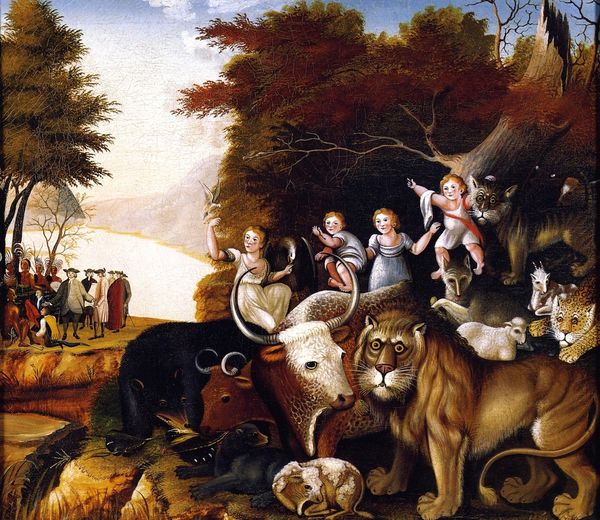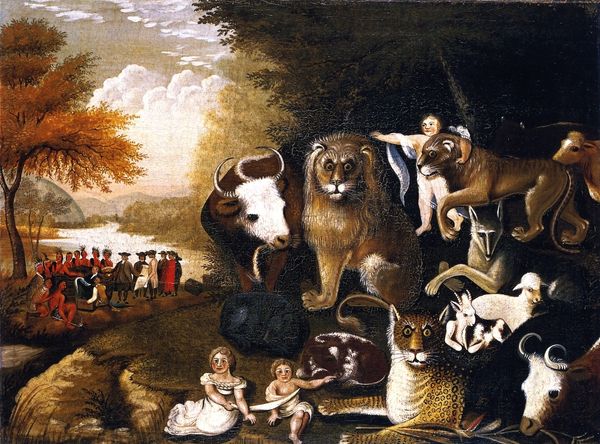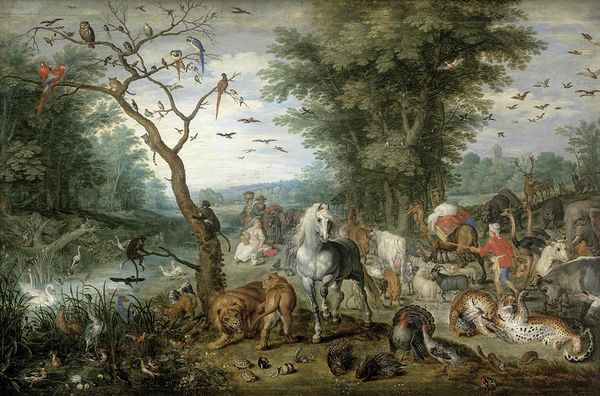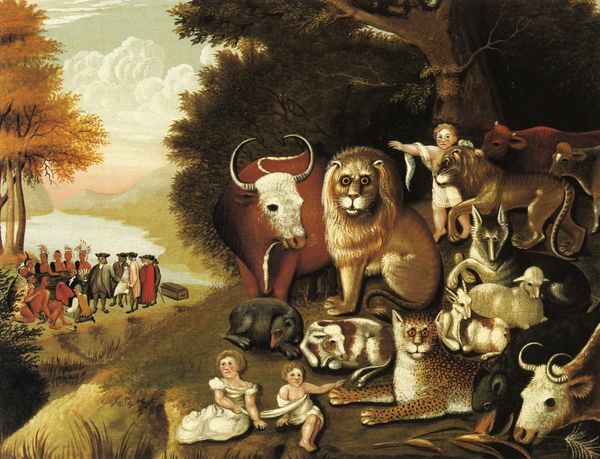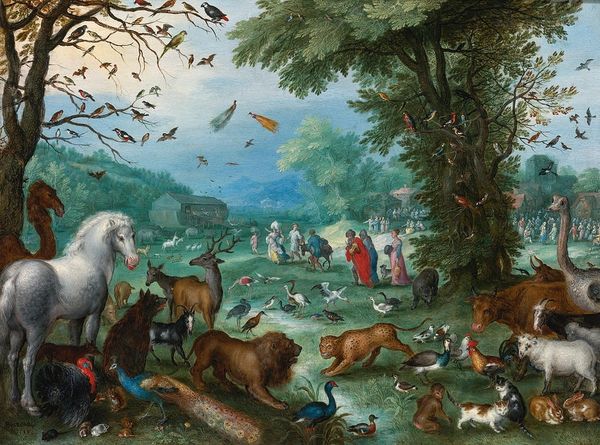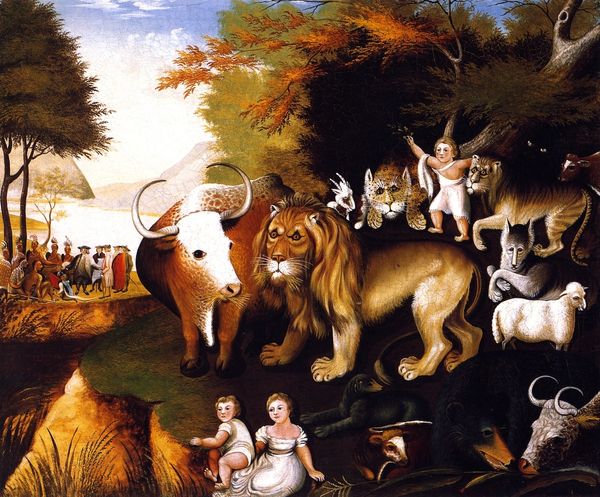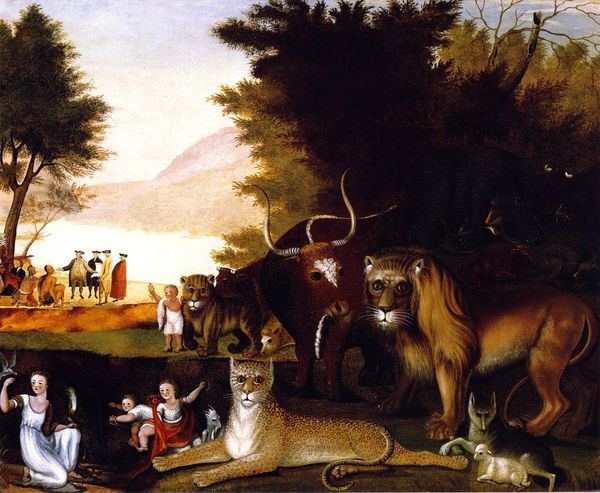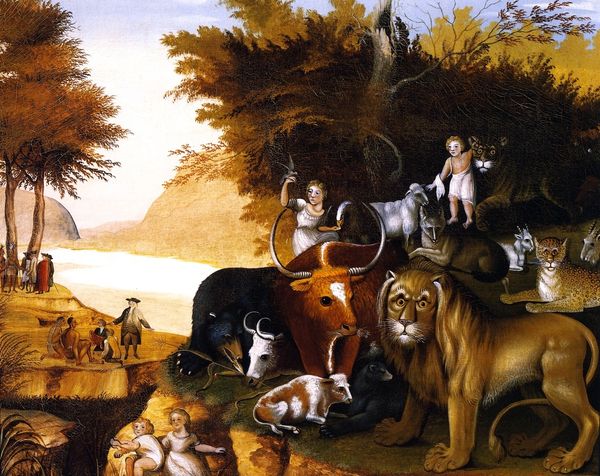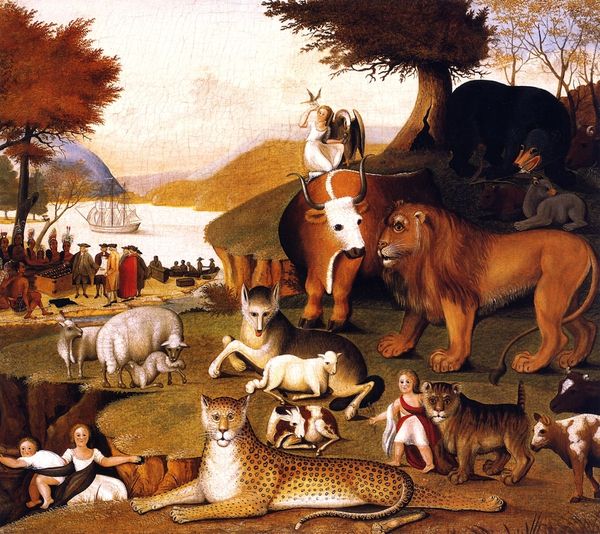
painting, oil-paint
#
gouache
#
narrative-art
#
baroque
#
painting
#
oil-paint
#
landscape
#
figuration
#
oil painting
#
underpainting
#
painting painterly
#
painting art
#
genre-painting
#
history-painting
Copyright: Public Domain: Artvee
Editor: We are looking at "The Animals Entering Noah’s Ark," an oil painting by Jan Brueghel the Younger, made sometime between 1630 and 1670. The sheer volume of animals is amazing! What do you notice first about its formal qualities? Curator: Immediately, the composition reveals itself through a distinct foreground, middle ground, and background. Brueghel utilizes a high horizon line, common in earlier Flemish landscape painting, which allows for an expansive presentation of detail. The light source appears diffuse, illuminating individual animal forms rather than creating dramatic contrasts. Note how each species is rendered with meticulous detail, reflecting Brueghel’s observation of natural forms. Editor: So, it's the details that construct the whole? The painterly approach as the overarching framework for this painting? Curator: Precisely. While a narrative is present, consider the careful arrangement of the animals – the juxtaposition of size and texture. Note the rhythm created by the varied colors and the implied movement toward the ark itself. This meticulous rendering invites prolonged visual engagement, rewarding viewers who pay attention to the structural details, how they contrast against each other, and if any semiotics are noticeable throughout this landscape. Editor: Fascinating! So, it's not just about the story, but how the artist uses form and colour to lead our eye and create this sense of organized chaos? Curator: Indeed. We can also study how colour temperature affects the rendering and, furthermore, affects depth in certain key zones of the painting. That would create some new perspectives in the context of formalism. What do you think? Editor: I think I understand the formalist approach so much better now. The painting becomes a sum of its meticulously created parts. It is a great piece and definitely more impressive knowing all this context.
Comments
No comments
Be the first to comment and join the conversation on the ultimate creative platform.
